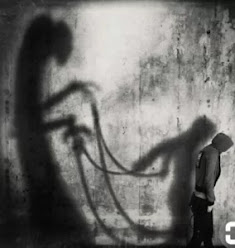Tips for the Objective Paranormal Investigation
To be objective is to not be influenced by personal feelings or opinions in considering and representing facts. Cognitive bias is a systematic thought process caused by the tendency of the human brain to simplify information processing through a filter of personal experience and preferences. So what does that mean? Here are a few pieces of advice and information of real situations where objectivity may be compromised and cognitive bias enters the chat....
One of the first things that occurs with any paranormal case is that the paranormal investigator or team communicates with the client. During this period of time the client is interviewed, questions are asked and answered, and a lot of information is shared. In your first line of communication, you may have already had compromising information shared with you that can influence your investigation. I have always documented these interviews well and created a plan to validate the information. A client's personal experiences are important and we keep them documented, however a paranormal investigator should always attempt to debunk or recreate them naturally FIRST. Never automatically assume they have made an attempt to find their own answers. Try to find natural and logical reasons for the phenomena, document them very well (paper notes, voice recorder, and video). If a client gives you historical information that they do not have documentation of, you need to validate this information by finding factual documentation (deeds, newspapers, historical society, genealogy, etc.), what if this information is false? I have had a lot of clients and potential locations play up their activity and their history with false information. It looks really foolish to use potentially false information on an investigation. Always do your homework.
What else can compromise your objectivity? Religion, past personal experience, television, and more. Be careful of what you absorb as fact. A paranormal investigator is going to use as much factual information they can to form a conclusion. This goes for psychic mediums as well. I don't agree with using a psychic first without entering the location. The information that a psychic receives should only be a tool, it is usually only received by one person and cannot necessarily be validated immediately. If you use information without validating it, you may be led astray into chaos.
False artifacts? Pareidolia, whether auditory or visual, can influence less experienced individuals. While I do accept that a lot of people have extrasensory perception, I do not believe in a lot of the metaphysical means to communicate with spirit. Scrying is a good example. Instrumental Trans Communication as well is subject to our hearing and ability to pick apart the auditory senses. It is easy to be influenced by the sound and think you hear something, you need to learn the equipment and the potential responses before you run with something you thought you heard. All of these things can tip over your objectivity and destroy your data.
There are so many things to consider when remaining objective and not being attached to an outcome of an investigation. A good investigator will go in to collect data not expecting anything specific and will be surprised when they get a response. A not so good investigator will go in expecting to find what the client is searching for. Those are not answers and we should never engender a fear of something that is not real. Clients should get the truth whether they accept it or not.




Comments
Post a Comment